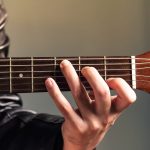From Johnson v. Knox County Bd. of Ed., decided Mar. 31 by Judge J. Ronnier Greer (E.D. Tenn.), but just recently posted on Westlaw; seems correct to me:
Plaintiffs allege the following facts: On the afternoon of March 31, 2022, Rebekiah Johnson, and her young adult son Shaque Johnson went to New Hopewell Elementary, where Brandon Pratt was the principal, “to bring attention to the racism within the schools and administration that the Johnsons had experienced through Principal Brandon Pratt.” Shaque Johnson stood across the street from one of the parking lot exit/entrances holding a sign that stated, “Mr. Pratt was wrong. Read eagleswithcolor.com” on one side and “the TRUTH about Principal Pratt, eagleswithcolor.com” on the other side. Rebekiah Johnson walked along the street on the side of the school with her sign that read “Mr. Pratt is racist. eagleswithcolor.com” on one side, while the other side read, “The Community needs to know! eagleswithcolor.com.” Rebekiah Johnson and her son were on the street, which is public property. As parents arrived to pick up their children, Rebekiah Johnson walked between the two exits/entrances holding her sign.
The SRO [School Resource Officer] approached Rebekiah Johnson and told her she needed to move across the street. Rebekiah Johnson told him that “she was on public property and had a right to stand where she was standing.” The officer replied, “Yes … as long as you don’t go behind the fence.” At that time, Rebekiah Johnson was standing nearly thirty feet away from the fence. The SRO then walked away. Rebekiah Johnson continued walking along the street with her sign and only spoke with people who asked her a question. She did not impede traffic or create a disruption.
Meanwhile, Shaque Johnson stood silently across the street from the other exit of the school so parents could see his sign as they left the school parking lot. While he stood there, the SRO and another older white gentleman who was later identified as Fred Wade, a teaching assistant at New Hopewell Elementary School, walked along the school driveway and stood near the exit. Wade began addressing Shaque Johnson across the street. He seemed angry and the SRO was carrying a gun, so Shaque Johnson began recording the interaction on his phone. Wade yelled at him from across the street, stating that Shaque Johnson “could not be recording.” Shaque Johnson told Wade he could record and Wade threatened to take Shaque Johnson’s phone from him. When most of the cars had left the parking lot, Wade and the SRO walked away. “Once the school driveway was pretty much cleared out Rebekiah and Shaque Johnson decided to pack up their signs to leave.”
On April 7, 2022, Rebekiah Johnson received a letter from Investigator Martin Timms. The letter stated, “It has come to the attention of the Knox County Schools Security Division that your recent protest at New Hopewell Elementary School has been inappropriate and disruptive. As a result of this behavior, you are being issued a civility code letter.” The letter cited Knox County Board of Education Policy B-230 and stated, “Further violations in Knox County Schools Board Policy B-230 may result in you being banned from coming on to any property owned or controlled by Knox County Schools.” Finally, the letter stated that Rebekiah Johnson needed to make herself aware of Tenn. Code Ann. §§ 39-14-405, 39-14-406, and 39-17-305.” Rebekiah Johnson needed to be able to access KCBOE property to pick up her younger children, who attended Knox County schools other than New Hopewell Elementary. After receiving the letter, she and Shaque Johnson did not protest against Principal Pratt again….
The court allowed much of the plaintiffs’ First Amendment case to go forward:
Defendants argue that Plaintiffs’ protest—and in particular Rebekiah Johnson’s sign calling Mr. Pratt a “racist”—was not protected by the First Amendment because it was defamatory and disruptive to the educational environment. In support of this argument, Defendants cite caselaw showing that schools can regulate vulgar or insubordinate speech on school grounds. The Court agrees that Rebekiah Johnson’s sign was capable of causing a disruption on campus. However, Defendants have cited no authority showing that a school can restrict the speech of private citizens like the Johnsons, who were protesting on public property within sight of the school. At this stage of the proceedings, Plaintiffs have adequately alleged that their protest was protected by the First Amendment.
{Shaque Johnson’s act of video recording may also implicate First Amendment concerns. See Knight v. Montgomery Cnty. (M.D. Tenn. 2020) (observing that although the issue is far from settled, “nationwide there is a growing trend of courts adopting the view that video recording is indeed speech for First Amendment purposes” and citing several examples).} …
[A]t this stage of the proceedings, Shaque Johnson has sufficiently alleged that Wade’s conduct violated his First Amendment rights. According to the Second Amended Complaint, Wade yelled at Shaque Johnson, told him not to record, and threatened to take his phone. Moreover, even if Wade overstepped the bounds of his duties as a teaching assistant, the facts suggest that he was acting in his capacity as a school employee when he interrupted Shaque Johnson’s protest….
[T]he civility code letter that Timms sent to Rebekiah Johnson essentially prohibited her from protesting about Principal Pratt near the school. Hence, Rebekiah Johnson has sufficiently alleged that Timms deprived her of her free speech rights….
Plaintiffs also claim that Defendants retaliated against them for their protest. To state a First Amendment retaliation claim, a plaintiff must show that: “(1) he engaged in protected conduct; (2) the defendants took an adverse action against him; and (3) a causal connection exists between the two.” “An adverse action is one that is ‘capable of deterring a person of ordinary firmness’ from exercising the constitutional right in question.” The first element has been met because, as discussed above, the Court finds that Plaintiffs have plausibly engaged in protected conduct….
Wade … argues that his interaction with Shaque Johnson did not constitute an adverse action because the Johnsons “stood their ground and continued their protest.” Certainly, the fact that Shaque Johnson was not deterred from protesting suggests that his speech was not chilled by Wade. But the adverse action test is objective. As such, “the issue is whether a person of ordinary firmness would be deterred, not whether the plaintiff himself actually was deterred.” Viewing the Second Amended Complaint in the light most favorable to Shaque Johnson, Wade’s threats could have chilled the speech of an ordinary person….
Timms also contends that the civility code letter that he sent to Rebekiah Johnson was not an adverse action because it did not actually threaten criminal prosecution. However, the letter threatened Rebekiah Johnson that if she engaged in another “inappropriate and disruptive” protest, the school would ban her from all Knox County schools. This letter could deter a person of ordinary firmness from engaging in another protest, especially if that person, like Rebekiah Johnson, had children attending schools in Knox County. Indeed, Rebekiah Johnson maintains that because of the letter she did not protest against Principal Pratt again. Accordingly, Rebekiah Johnson states a claim for First Amendment retaliation against Timms….
The court also declined to dismiss the case on qualified immunity grounds:
It is well established that a citizen’s right to speak publicly on matters of public concern—such as alleged racial discrimination by a school principal—is afforded broad protection under the First Amendment. And the First Amendment robustly protects a citizen’s right to criticize public officials, even when that criticism is not of public concern…. “Freedom to criticize public officials and expose their wrongdoing is at the core of First Amendment values, even if the conduct is motivated by personal pique or resentment.” … At a later stage of proceedings, Defendants could prevail on a qualified immunity defense. However, at this stage, Plaintiffs have met the low bar of plausibly alleging that they had a clearly established right to protest free from Defendants’ interference. Accordingly, dismissal on qualified immunity grounds is premature….
The post Protesting Outside School, Calling Principal a Racist, Is Protected by the First Amendment appeared first on Reason.com.






